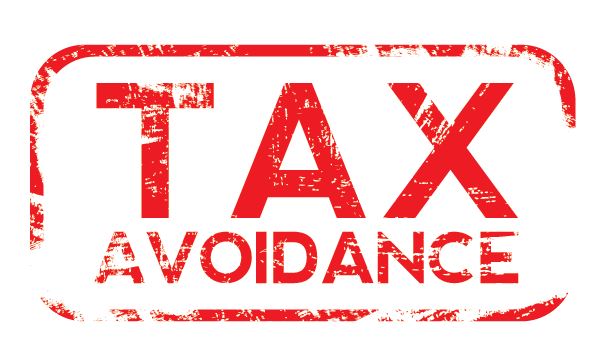No issue in Pakistan currently attracts as much attention as that of tax evasion. On one hand, we have the people of Pakistan accusing the politicians for being tax thieves while on the other hand a certain group called Research and Advocacy for the Advancement of Allied Reforms (Raftaar) claims that most of the Pakistanis are tax evaders. Tax evasion has become a polarizing subject in Pakistan.
Even Pakistan’s major creditors which include International Financial Institutions (IFIs) like the International Monetary Fund (IMF) and the Asian Development Bank (ADB) routinely blame Pakistan’s development woes on tax evasion. As per them, Pakistan’s low tax-to-GDP ratio has tax evasion as one of its prime causes. Resultantly, a curb on tax evasion as a tool to increase tax revenue is incorporated as one of the many conditions for securing loans.
After the PML-N government undertook IMF’s Extended Funds Facility (EFF) program of worth $6.6 billion in 2013, there have been active efforts on part of the government to decrease tax evasion.
Government’s policy to reduce tax evasion is two-pronged. First, the government has been running an aggressive campaign to crack down tax evaders. Second, it is relying on moral suasion to persuade against evading taxes. The Raftaar campaign is based on this premise. Just like Raftaar, the Federal Board of Revenue (FBR) too has utilized media campaigns to not only convince Pakistanis into paying tax but also to threaten them.
Other than the threat of being caught and subsequently punished, both of these policies are flawed in a sense that they fail to give any incentives to the economic agents like consumers and merchants not to engage into the practice of tax evasion. Economic agents respond to incentives. Nobody needs to be a professional economist to see that. A good economic policy can’t be expected to draw results by merely appealing to an individual’s consciousness. Similarly, using coercion as an instrument to an outcome can only be good enough to be more disruptive than constructive. Trust and confidence on FBR by the Pakistani business community has been diminishing markedly owing to this aggressive push.
It isn’t much of a surprise then that tax evasion continues to remain unabated in Pakistan. The government needs to focus on more effective and less disruptive measures. One such alternative can be the promotion of electronic payment system in Pakistan. For an economy like Pakistan, its case is quite convincing.
An ideal tax system is based on the principle of perfect information. The reported income by an individual is accurate and the incidence of tax evasion is zero. However, just like any other country in the world, it is not difficult to realize that that’s not the case in Pakistan. Individuals do not provide perfect information on their taxable income. Reasons for such behavior can be traced to avoidance of paying a high tax or cumbersome administrative procedures. This is true for any developing country as well. Even in developed countries where the share of reported income in total income is higher, tax evasion exists.
In the presence of such information barriers, taxmen have to run third-party information trails by studying transactions patterns of an individual to see if he has reported his income correctly and is not evading taxes. Third-party institutions like employers, banks, and pension funds etc. report such information. In countries where the share of third-party verified income goes up; the intensity of tax evasion decreases.
But in Pakistan, this third-party information is not that prevalent. For example, in case of banks, most of the Pakistanis still don’t have any bank account. Financial inclusion is low. Not many Pakistanis have invested funds with an asset management company either.
Those who deliberately avoid such third-party institutions in any transaction for tax reasons prefer to settle in cash. Settlement in cash by not registering a purchase gives incentives to tax evasion. If electronic payment system is promoted in Pakistan, a purchase can’t go un-registered by both seller and buyer. Mostly electronic payment system involves use of debit/credit card or an online purchase.
These electronic means of settling a transaction are in place in Pakistan as well. In few cases, the government is also playing its due role along with private banks to entrench them more firmly. Despite the efforts, electronic settlement of transaction is not picking up. Incentives for electronic payment system are not in place which is hurting their take-off.
Consumers can be given tax discounts on GST if payment is made through a debit/credit card. For example, if an individual pays a restaurant bill through his debit card he gets a 1 percent discount on his General Sales Tax (GST) liability on the amount of purchase. Similarly, merchants can also be given tax discounts on Value Added Tax (VAT). Measures like these would give both consumers and merchants incentives not to settle a transaction in cash and hence a transaction would be automatically recorded.
Such smart alternatives geared with proper incentive structures should be focused by the government of Pakistan rather than subverting private enterprise through coercion. The current approaches can’t be expected to halt tax evasion in Pakistan.





How can you even make that happen? People who evade tax are the one who are saying to people that they want to make it stop lol. How can this happen? Nothing can be changed until or unless you the people stand up and fight for your rights.
Respected Sir,
These days i conduct the research about Tax evasion in Pakistan. Please guide me about data analysis techniques and which types of statics techniques use to explore the result.
and find dependent and independent variables.
With Best Regards,
Wasif Latif
Student.
Imran Khan PTI Behind Tabdeeli…